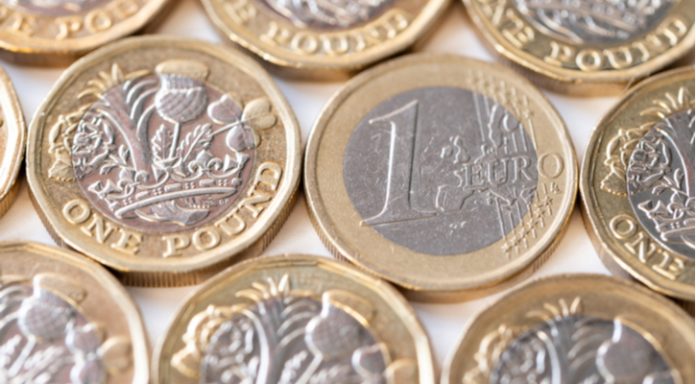- Pound (GBP) rises as consumer confidence rises to -38
- BoE’s Catherine Mann supports more rate hikes
- Euro (EUR) falls after German Q4 GDP falls -0.4%
- German consumer confidence improves
The Pound Euro (GBP/EUR) exchange rate is rising after two days of declines. The pair fell -0.18% in the previous session, settling on Thursday at €1.1339, after trading in a range between €1.1332 – €1.1372. At 09:25 UTC, GBP/EUR trades +0.15% at €1.1357 and is set to rise 0.9% across the week.
The pound is rising on the final day of the week after stronger-than-expected consumer confidence data pointed to resilient households despite persistently high inflation.
According to GfK, consumer confidence rose 7 points to -38, up from -45. This was ahead of a rise to -43 that Analysts were expecting and also marks the highest level of consumer morale since April last year. Whilst it is still a depressed level by historical standards, consumers are definitely showing more optimism about the outlook for their personal finances and the general economic situation across the coming year.
The pound is also finding support from hawkish comments from Bank of England policymaker Catherine Mann who consider that more interest rate hikes are needed to clamp down on inflation. She also dismissed talk of a dovish pivot towards a looser monetary policy. With inflation still around for decades high of 10.1% and wages rising strongly, she considers it too early to think about cutting interest rates.
Meanwhile, the euro is falling as investors digest mixed data on the one hand, German consumer confidence was stronger than expected, rising to -30.5, up from -33.5 as energy prices fell and inflation cooled.
However, on the other hand, the German economy contracted at a steeper pace in the final three months of last year. Q4 GDP shrank -0.4% quarter on quarter, below the -0.2% preliminary reading and down from 0.5% growth in Q3.
The data comes as expectations have been rising that the German economy could avoid a recession (two consecutive quarters of negative growth). Or at least if the economy did fall into recession, it would be a milder recession than initially feared.





